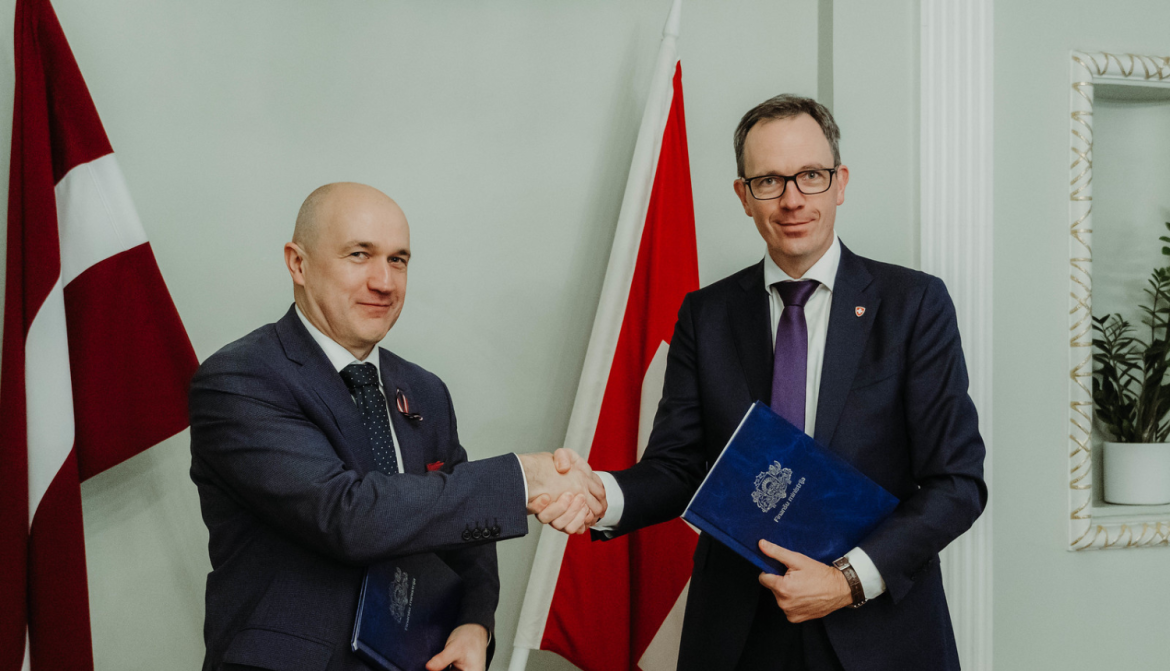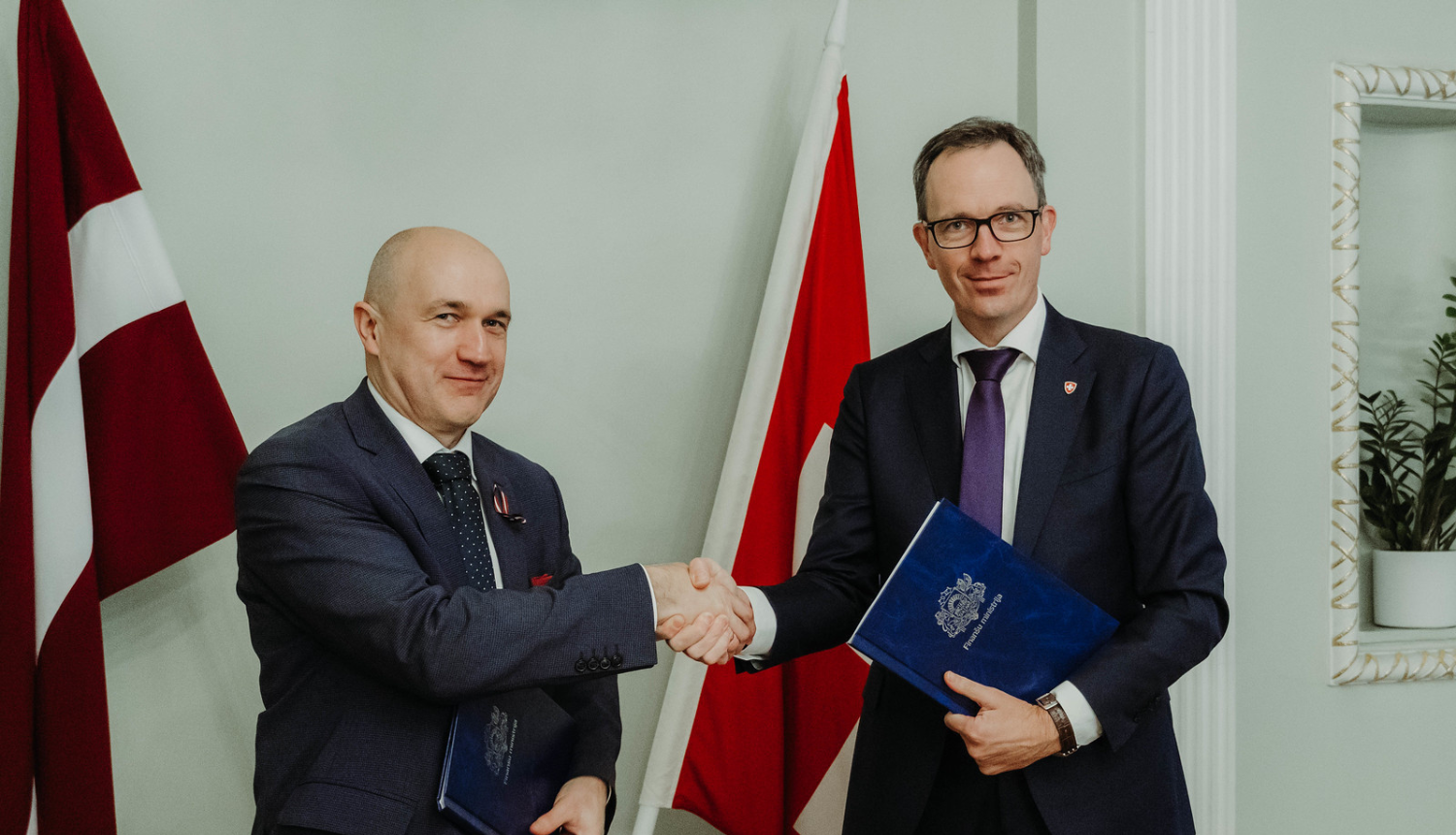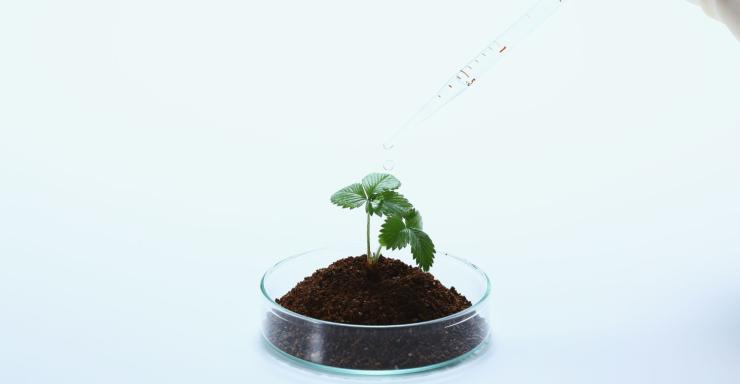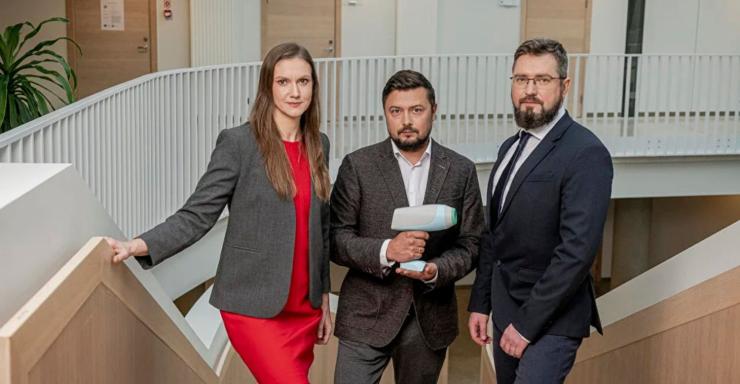In collaboration with Swiss research institutions, Latvian scientists are launching new projects to develop environmentally friendly building materials and energy-efficient technologies. The initiative, promoted by the Ministry of Education and Science, approved by the government on June 10, 2025, provides for the continuation of the applied research program “Partnership in Applied Research Areas: Innovative Materials, information and Communication Technologies and smart energy” implemented within the framework of the Latvian-Swiss cooperation program.

Photo: Kristers Zaļais / Ministry of Education and Science
This partnership will strengthen Latvian science and promote the development of innovative solutions that benefit society and business.
Minister of Education and Science Dace Melbārde emphasises: “This program demonstrates Latvia’s ability to be a full-fledged partner in research and innovation. Cooperation with Switzerland provides our scientists access to excellent research infrastructure while strengthening our scientific potential. Of particular importance is the fact that this program promotes the involvement of young researchers and promotes the attractiveness of STEM fields among young people, thus investing in the future human capital that will ensure Latvia’s long-term competitiveness.”
Within the framework of the program, two ambitious research projects are being implemented from January 1, 2025, to November 30, 2029: in the fields of materials science, information and communication technologies, and intelligent energy:
- LACHMAT – a project implemented by Riga Technical University (RTU) and the Swiss Federal Laboratories for Materials Science and Technology EMPA on innovative and high-performance building materials, including fibre-reinforced concrete, asphalt with an extended life cycle, and 3D printed concrete.
- LACISE – a project led by the Institute of Solid-State Physics of the University of Latvia, which develops artificial intelligence-based solutions for electricity stability and improvement of battery technologies. The project is implemented in cooperation with Latvian and Swiss partners: Institute of Electronics and Computer Science, RTU, Paul Scherrer Institute, Zurich University of Applied Sciences and the Swiss Centre for Electronics and Microtechnology.
To create a closer connection between science and industry, each project has advisory boards, which involve Latvian companies and public organisations, such as Riga International Airport, Riga TechGirls. This mechanism will help ensure that research results meet the needs of the industry and society and are practically applicable.
Latvia and Switzerland will create a joint competence centre in the field of energy storage and smart electricity grids. This centre will become a platform for interdisciplinary cooperation and innovation development, combining the knowledge and experience of research institutions of both countries to address current challenges in the energy sector and promote the development of sustainable technologies.
Lauma Muižniece, Director of the Science Council of Latvia, points out: “The launch of the program is an important step that allows Latvian science to compete internationally, cooperate and develop solutions with high added value. This cooperation with Switzerland confirms our potential to become an innovation centre in the Baltic. The LACHMAT and LACISE projects will not only strengthen the capacity of Latvian scientific institutions but will also provide real benefits to the national economy, from road infrastructure to using artificial intelligence in energy.”
The program's goal is to support practically oriented research projects that promote the development of areas identified in the Latvian Smart Specialisation Strategy (RIS3) and make a significant contribution to Latvia's sustainable and innovation-based development. The program is also closely linked to the goal of the Swiss-Latvian cooperation program – to promote economic growth, social dialogue and reduce unemployment, especially among young people.
The implementation of this program will promote the involvement of young scientists, international cooperation with Swiss research institutions, an increase in the volume of scientific publications, and the development of advanced technologies, the results of which will be freely available and usable in both the economy and society.
The program promotes interest in STEM fields (science, technology, engineering and mathematics), especially among young people, including girls, as well as schoolchildren and students outside Riga, to create equal opportunities and stimulate interest in science throughout Latvia, so that talents develop regardless of place of residence or gender, thus strengthening the future of Latvian science and human resources for long-term development.
At the same time, the program will also promote the involvement of young talents. It provides for the participation of bachelor's and master's level students, the attraction of doctoral students and the opportunity for high school students to engage in the development of scientific research work.
It helps to build scientific continuity and develop human resources that will ensure Latvia's future growth.
The program's total budget until 2029 is 12 352 941 EUR, of which Swiss co-financing is 85% or 10 500 000 euros, but Latvian state budget co-financing is 15% or 1 852 941 euros. The Ministry of Education and Science, in cooperation with the Latvian Academy of Sciences, ensures the program's implementation.


